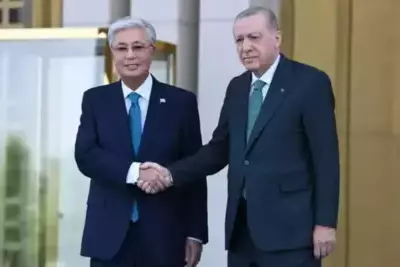Turkey’s recent failed coup may lead to the worsening of Europe’s migration crisis. That’s because it could lead to the dissolution of a recent pact between Brussels and Ankara over the plight of refugees arriving on the European Union’s shores. Even before the events of last weekend, the fate of the agreement was uncertain amid quarrels between the parties. Now its future is even more in doubt.
Last year, more than a million migrants and refugees crossed into Europe, roiling politics across the continent. It’s a crisis EU chief Donald Tusk has described as an “existential challenge.”

Under the terms of the deal, Turkey agreed to accept the “rapid return of all migrants not in need of international protection crossing from Turkey into Greece and to take back all irregular migrants intercepted in Turkish waters.” In other words, almost all refugees who cross into Greece are slated to be returned to Turkish soil.
In return, the EU pledged to speed up the allocation of €3 billion in aid to Turkey to help it house and care for refugees, “reenergize” Turkey's bid for membership in the EU, and lift visa restrictions on Turkish tourists and businessmen.
But the European Commission has conditioned changes to the visa restrictions on better governance in Turkey. In particular, it requires a change in President Recep Tayyip Erdoğan’s controversial anti-terror law, which he has used to crack down on journalists and critics. Erdoğan was already adamantly against narrowing the law to protect free speech. Having now overcome a determined coup attempt, he is even less likely to do so. On Sunday, he suggested that he might reintroduce the death penalty, a practice Turkey abolished in 2004 as part of its bid for EU membership. Doing so would widen the gap in political culture between Turkey and Europe and, as German Foreign Minister Frank-Walter Steinmeier asserted forcefully on Monday in Brussels, derail the already limited possibility of reigniting accession talks.

The pact has already been strongly opposed by the European left, and particularly by humanitarian and human rights groups. Rising authoritarianism in Turkey would only increase resistance to the deal, making implementation even harder, especially if those groups were to scale back their activities on the ground.
Crucially, a crackdown could also undermine the legal basis of the agreement. One of the agreement’s key provisions is that individuals who cross from Turkey into Greece will be sent back across the Aegean to Turkey. That hinges on the notion that Turkey is a “safe third country” for migrants. A crackdown could prompt refugees to argue that it isn’t. If that were the case, deporting them to Turkey could be seen as constituting “refoulement”—the forcible return of asylum seekers to a country where they are prone to be subjected to persecution—which is forbidden under both international and EU law.
That’s a problem, since some analysts believe worsening conditions in Turkey could lead even more people seeking refuge to journey onward to Europe. In the past, Erdoğan has threatened to “open the gates” and send refugees streaming into Europe when displeased with the level of financial assistance from Brussels earmarked for managing the crisis. Preoccupied by troubles at home, he may see stability as in his interest and resist taking aggressive steps that would cause an open breach.
















